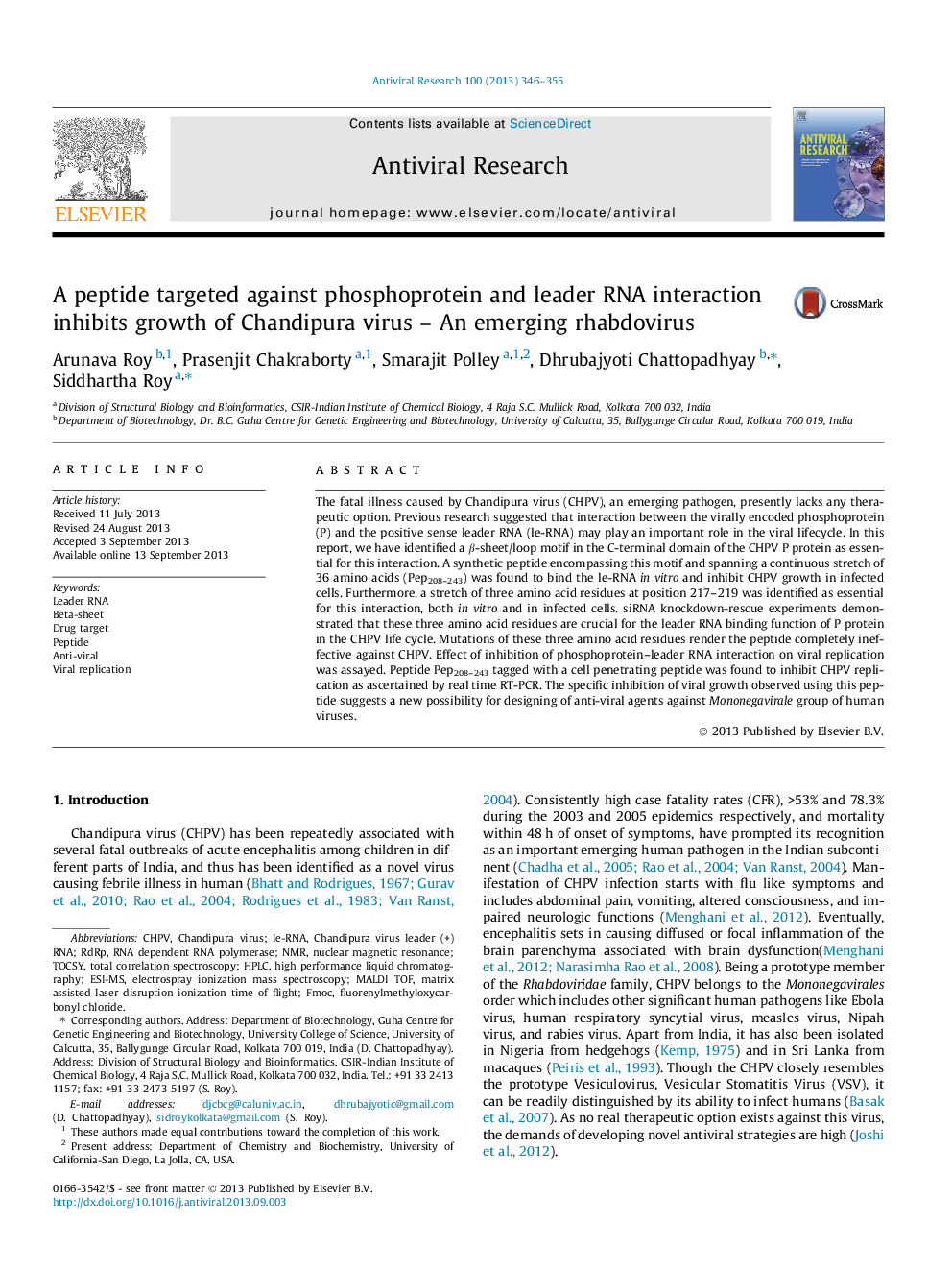| Article ID | Journal | Published Year | Pages | File Type |
|---|---|---|---|---|
| 5822319 | Antiviral Research | 2013 | 10 Pages |
Abstract
The fatal illness caused by Chandipura virus (CHPV), an emerging pathogen, presently lacks any therapeutic option. Previous research suggested that interaction between the virally encoded phosphoprotein (P) and the positive sense leader RNA (le-RNA) may play an important role in the viral lifecycle. In this report, we have identified a β-sheet/loop motif in the C-terminal domain of the CHPV P protein as essential for this interaction. A synthetic peptide encompassing this motif and spanning a continuous stretch of 36 amino acids (Pep208-243) was found to bind the le-RNA in vitro and inhibit CHPV growth in infected cells. Furthermore, a stretch of three amino acid residues at position 217-219 was identified as essential for this interaction, both in vitro and in infected cells. siRNA knockdown-rescue experiments demonstrated that these three amino acid residues are crucial for the leader RNA binding function of P protein in the CHPV life cycle. Mutations of these three amino acid residues render the peptide completely ineffective against CHPV. Effect of inhibition of phosphoprotein-leader RNA interaction on viral replication was assayed. Peptide Pep208-243 tagged with a cell penetrating peptide was found to inhibit CHPV replication as ascertained by real time RT-PCR. The specific inhibition of viral growth observed using this peptide suggests a new possibility for designing of anti-viral agents against Mononegavirale group of human viruses.
Keywords
Related Topics
Life Sciences
Immunology and Microbiology
Virology
Authors
Arunava Roy, Prasenjit Chakraborty, Smarajit Polley, Dhrubajyoti Chattopadhyay, Siddhartha Roy,
